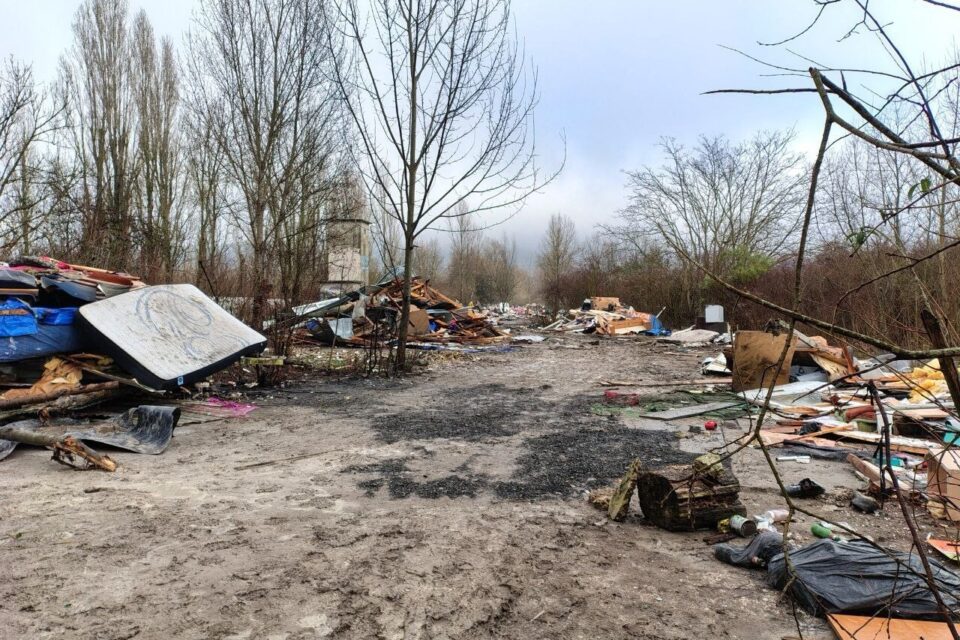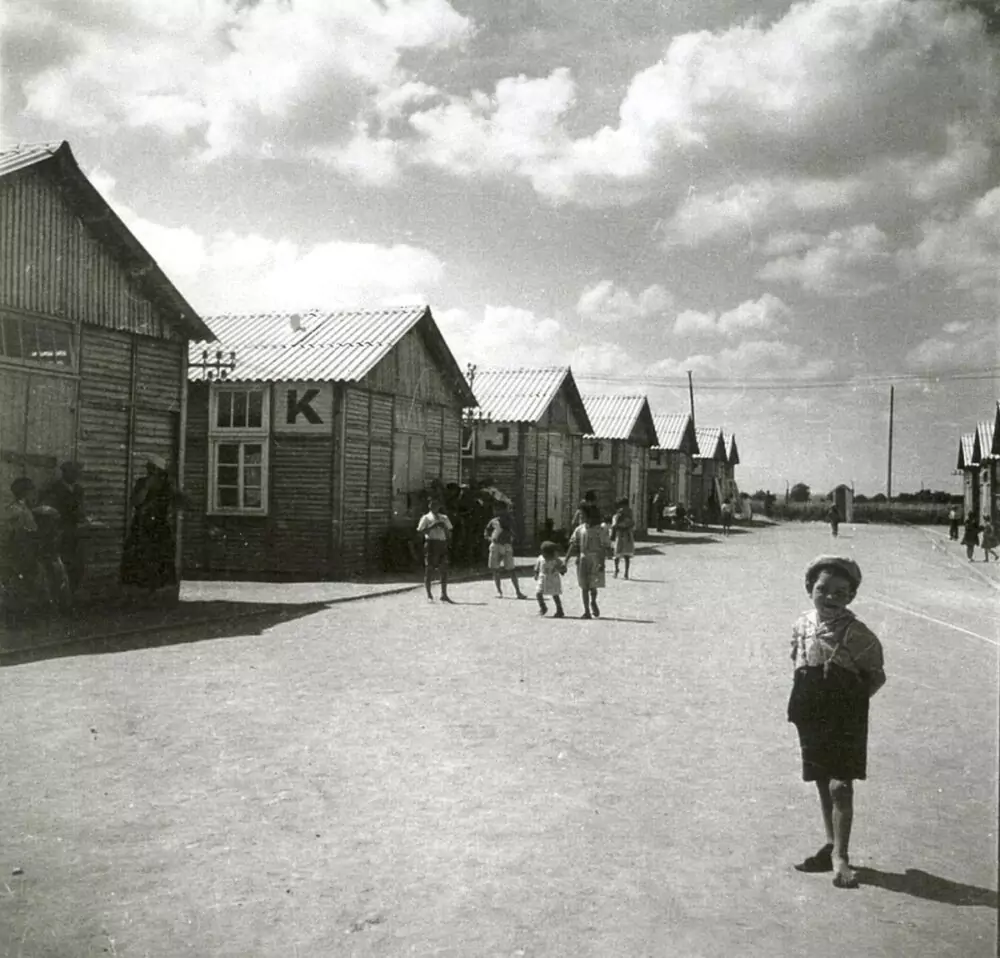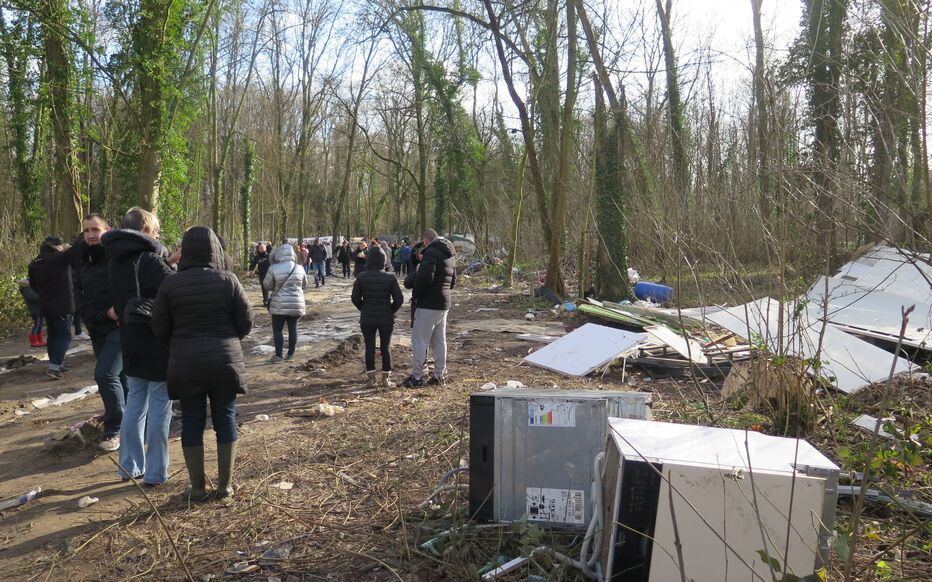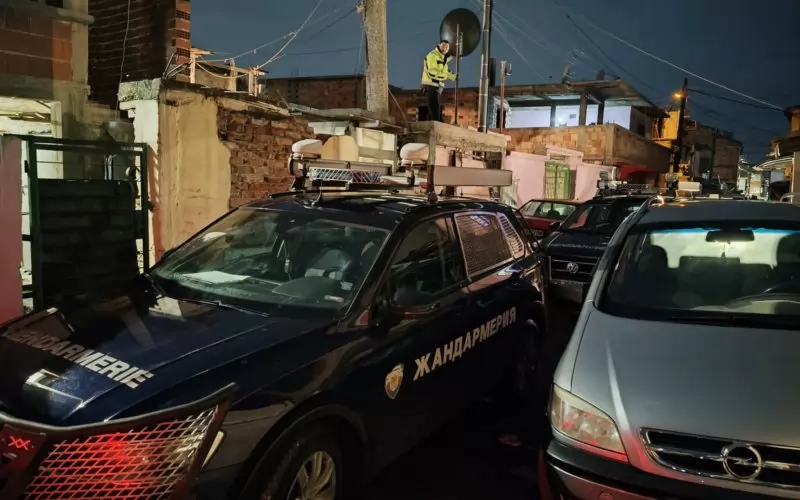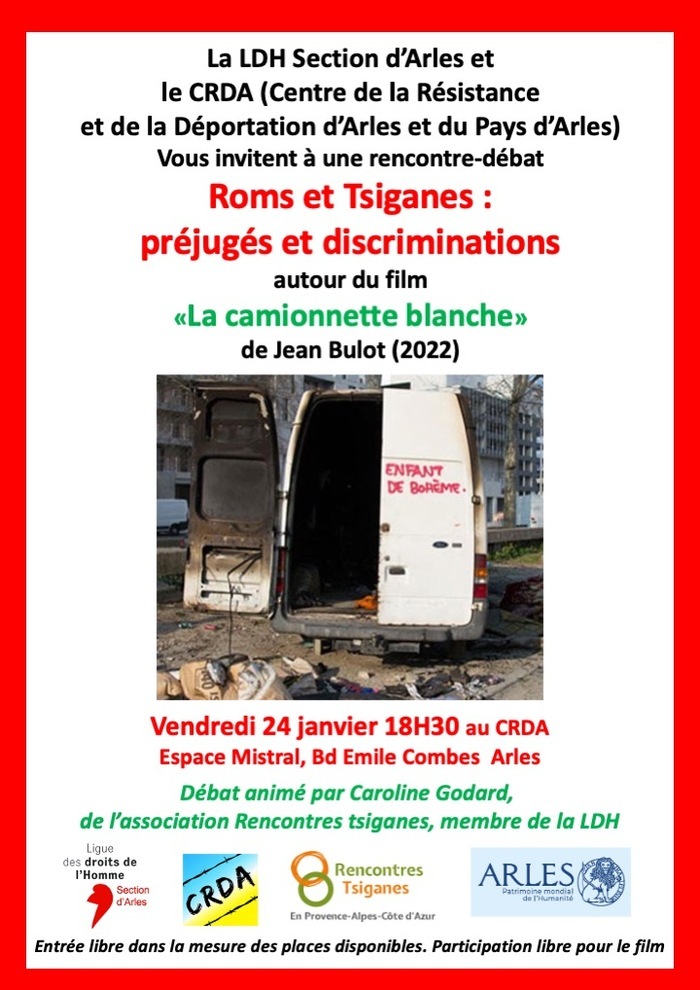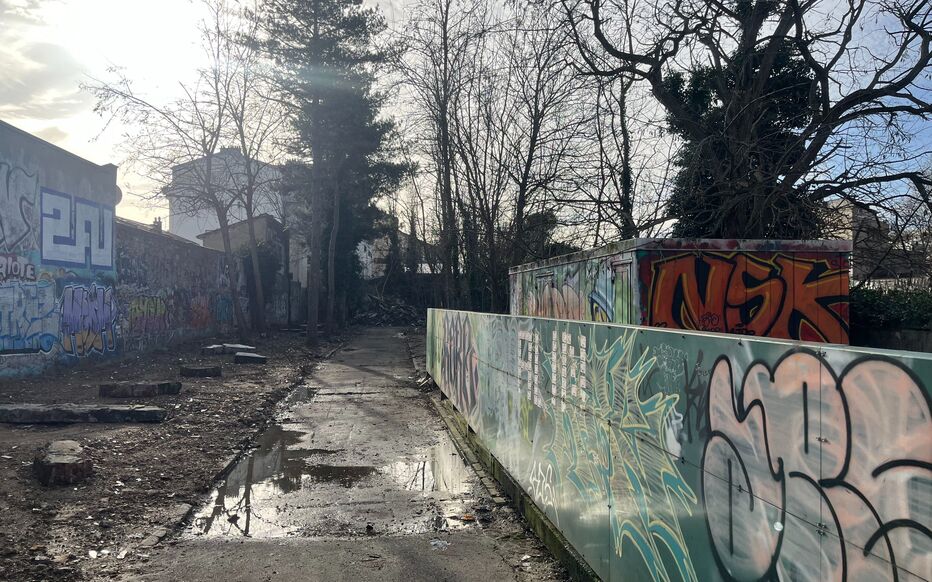RTL (2014) and Le Figaro (2014) report on further evictions of informal Rroma settlements in Saint-Etienne. The authorities of Saint-Etienne evicted two camps with a total of 115 people, including 67 children. The sites of the settlements belonged to the city of Saint-Etienne and to a Turkish club. The displaced persons were informed that they should contact the SAMU. This means that the inter-ministerial circular from August the 26th, 2012, which requires a social diagnosis before the evictions, was not applied. However, the residents of the settlements had already been asked to leave the premises on November 7th, 2013, through a court order. Pregnant women and families with infants were offered temporary accommodation.
In Nanterre, the eviction from an informal settlement is imminent. The special case of the camp of Nanterre is that already in the 1980s, among nearly identical circumstances, a settlement was evicted. After it became known that the current settlement is to be cleared, four of the residents turned to the European Court of Human Rights. This one criticized the French policy and called the persons in charge to suspend the eviction and to inform the persons concerned on the proposed solutions in a timely fashion. The settlement residents in turn organised a press conference to inform the public about their concerns and to present their stories. In the case of an eviction, they demand appropriate alternative accommodations. In addition, 23 children of the settlement are enrolled in school. One wants to make sure that the children can continue to attend school, which would not be guaranteed in the event of an evacuation. Both the French communist party and the anti-racism organization MRAP fight against an eviction (Urbach 2014). Once again it should be stressed that the evictions complicate a long-term integration of migrants and don’t promote it. Through the evictions, the problems are simply moved from one place to the next, but not solved. In addition, the media focus on informal settlements, the impression is conveyed that there are only Rroma who belong to the lower class and are poorly educated. However, according to estimates of the Rroma Foundation, 100,000 to 500,000 Rroma are living integrated and unobtrusively in French society (Rroma Foundation 2014). They are totally ignored by the public perception.
- Le Figaro/AFP (2014) Rhône-Alpes : des campements évacués. In: Le Figaro online vom 22.7.2014. http://www.lefigaro.fr/flash-actu/2014/07/22/97001-20140722FILWWW00161-rhone-alpes-des-campements-evacues.php
- RTL/AFP (2014) Saint-Etienne : des Roms et des demandeurs d’asile évacués de leurs campements. In: RTL online vom 22.7.2014. http://www.rtl.fr/actu/societe-faits-divers/saint-etienne-des-roms-et-des-demandeurs-d-asile-evacues-de-leurs-campements-7773350345
- Rroma Foundation (2014) Rroma Population. In: Rroma Foundation online vom 22.7.2014. https://rroma.org/the-rroma/rroma-population.html
- Urbach, Emilien (2014) Bidonville à Nanterre: «On revit la même situation. Même endroit, mêmes faits.» In: L’Humanité online vom 21.7.2014. http://www.humanite.fr/bidonville-nanterre-revit-la-meme-situation-meme-endroit-memes-faits-547820
